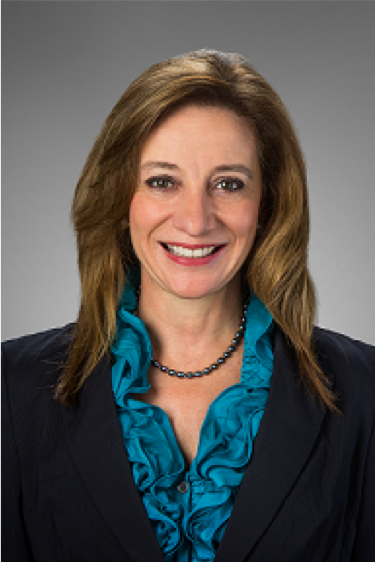From Engineer To VP And Everything In Between
This article originally appeared in the spring 2019 issue of Cornell Engineering Magazine.
Variety is said to be the spice of life, but it’s also a key ingredient in developing a prominent career in business and engineering. At least that’s true for Elissa Sterry ’79, M.Eng. ’80, who became vice president of ExxonMobil Chemical Company thanks to a lifetime of embracing diverse people, education, jobs and interests.
Sterry says it was her rigorous courses in operations research and engineering combined with Cornell’s liberal arts offerings that made her educational experience unique. During her undergraduate years, she mixed classes in optimization, probability and statistics with courses in English, art history and even flower arranging.
 "Cornell Engineering creates a situation where the graduates aren’t just accomplished technically, but they’re individuals who have a very broad background," said Sterry. "I found that to be incredibly valuable in preparing me for the workforce."
"Cornell Engineering creates a situation where the graduates aren’t just accomplished technically, but they’re individuals who have a very broad background," said Sterry. "I found that to be incredibly valuable in preparing me for the workforce."
As an M.Eng. student, she applied her engineering knowledge to handson projects while gaining experience in teamwork, meeting deadlines and prioritization. And it wasn’t just a variety of skills Sterry was exposed to, but also a variety of people.
"The university is really rich in its diversity and so you get to learn about different backgrounds, cultures and ethnicities, and that’s very valuable when you enter the workforce and have to work in populations that maybe see the world quite differently than you do," said Sterry.
Having an appreciation for different cultures was essential for Sterry in her role at ExxonMobil, which has manufacturing operations in every major region of the world. She was first introduced to the company through Cornell Engineering’s Co-Op program, in which students spend 28 weeks getting hands-on experience in a paid position at a corporation or startup. Sterry worked for ExxonMobil in New Jersey, where she first learned about the company’s structure and corporate environment. After graduating, Sterry applied to a number of different companies, but ultimately decided to take a job offer from ExxonMobil.
"I saw an opportunity to move beyond just doing technical work. That was really my ambition, to move into business and management, and so all those things came together," said Sterry.
Positions Sterry held at ExxonMobil included vice president of intermediates, deputy manager of public affairs, manager of economics and energy, and manager of business planning and support. She said the assortment of jobs she held at the company was by design.
"Exxon’s approach to development is to get everyone to their highest level of potential, but in order to determine what your highest potential is, you get exposed to a lot of different experiences and so that’s what builds this broad background," explained Sterry.
In 2006 she became the first female vice president of ExxonMobil Chemical Company—a branch of ExxonMobil that is itself one of the largest chemical companies in the world. She held the position for 11 years before retiring from the company in 2017. Looking back, Sterry said she is proud to have led the development of products that are so prevalent in everyday life.
"The products are for medical use or to keep people safe, like bicycle helmets, parts of an automobile that are made to be lightweight but durable, tires that are made to hold air for a long amount of time, products to make water clean, it’s an endless list of things that really help make modern life better for people," said Sterry, who added that her job also entailed keeping the company "attentive to protecting the environment."
Sterry’s rise in rank paved the way for other women to ascend within the company, and she has worked to inspire young engineering students to break the rules of convention as well. Although she lives in Houston, she often returns to Cornell to meet with student organizations like the Chemical and Biomolecular Engineering Graduate Women’s Group and the Society of Women Engineers, which Sterry has been a member of since she was a student. And through her generous giving to Cornell Engineering, she is helping the college recruit top female students.
"Sometimes we self-impose boundaries on what it is we’re capable of doing. The sky is the limit and people should feel freedom to follow their dreams and aspirations and put their full potential to work," said Sterry.
That’s a message she also shares when coaching young professionals through her role in Battlefield Leadership, a private consulting group that uses historical battles and case studies to examine modern leadership and communications skills—something Sterry said is essential for today’s engineers.
"Time and again history teaches us the same thing, that having great ideas or being brilliant is just not enough to accomplish great things," said Sterry. "This is just critical for engineering graduates to understand—that no idea, regardless of its merits, will take traction unless other people can share and see the vision of that idea."
Sterry remains busy in retirement. Other than her role in Battlefield Leadership, she is helping to steer the future of Cornell Engineering as the chair of the Engineering College Council—an advisory board to the dean—and enjoys spending time with her husband of 38 years, who she met at Cornell.
And as for variety in her life, Sterry is still trying to drink from every cup. She recently became a certified wine sommelier and is looking forward to testing her newfound professional skill on the Finger Lakes Wine Trails.
"I always wanted to take the popular wine course at Cornell and could never get into it," said Sterry, who quipped, "Studying for my certified exam was as tough as any course I took at Cornell."

